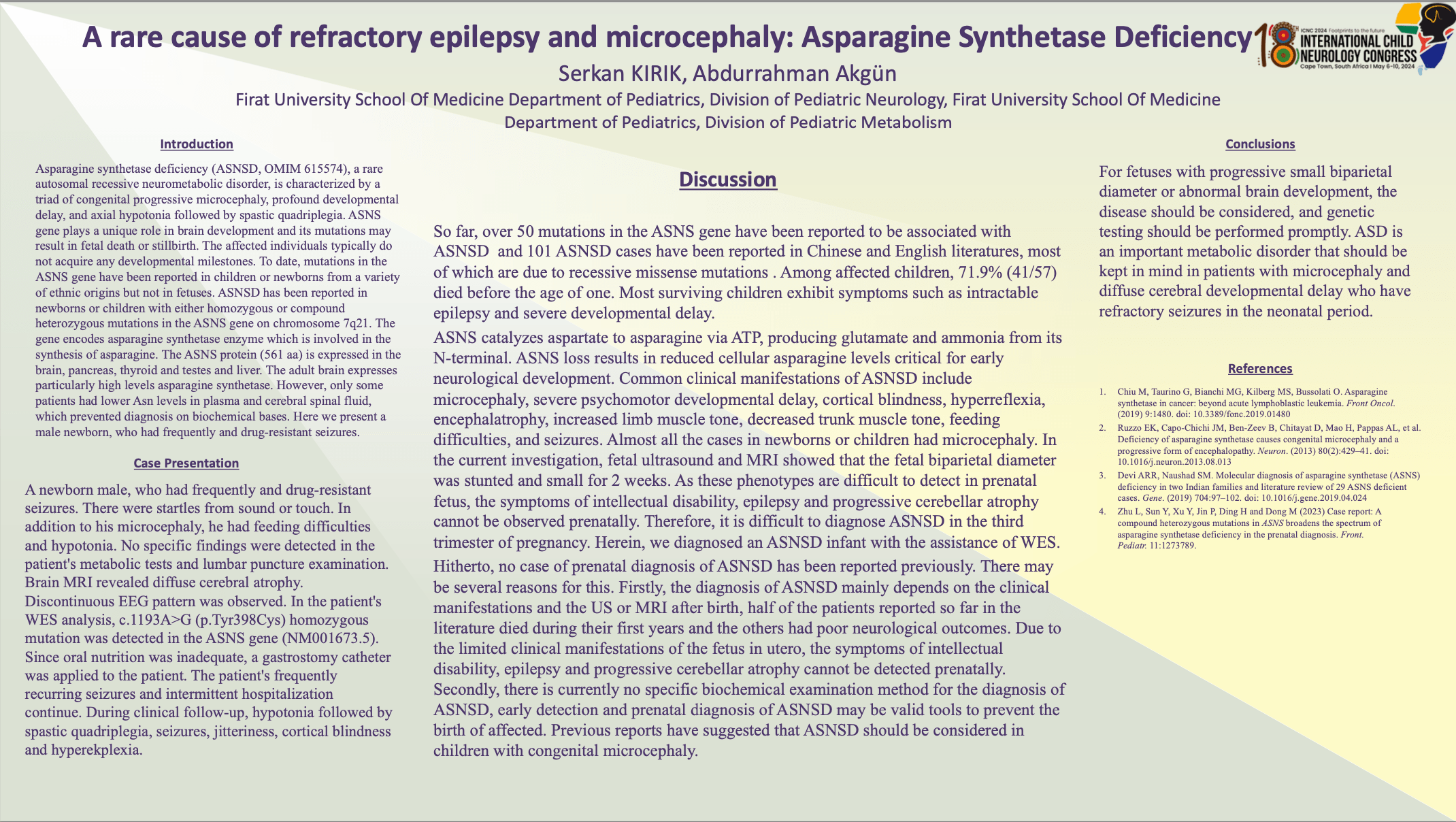A Rare Cause Of Refractory Epilepsy And Microcephaly: Asparagine Synthetase Deficiency
Asparagine synthetase deficiency (ASD) mainly presents as a triad of congenital microcephaly, severe developmental delay, and severe hypotonia followed by spastic quadriplegia. In most cases age of onset of apnea, excessive irritability, and seizures is soon after birth. Affected individuals typically do not acquire any developmental milestones. Here we present a male newborn, who had frequently and drug-resistant seizures. There were startles from sound or touch. In addition to his microcephaly, he had feeding difficulties and hypotonia. No specific findings were detected in the patient's metabolic tests and lumbar puncture examination. Brain MRI revealed diffuse cerebral atrophy. Discontinuous EEG pattern was observed. In the patient's WES analysis, c.1193A>G (p.Tyr398Cys) homozygous mutation was detected in the ASNS gene (NM001673.5). Since oral nutrition was inadequate, a gastrostomy catheter was applied to the patient. The patient's frequently recurring seizures and intermittent hospitalization continue. During clinical follow-up, hypotonia followed by spastic quadriplegia, seizures, jitteriness, cortical blindness and hyperekplexia. ASD is an important metabolic disorder that should be kept in mind in patients with microcephaly and diffuse cerebral developmental delay who have refractory seizures in the neonatal period.
SERKAN KIRIK
Firat University School Of Medicine Department of Pediatrics, Division of Pediatric Neurology
Turkey
Abdurrahman Akgün
Firat University School Of Medicine
Turkey
